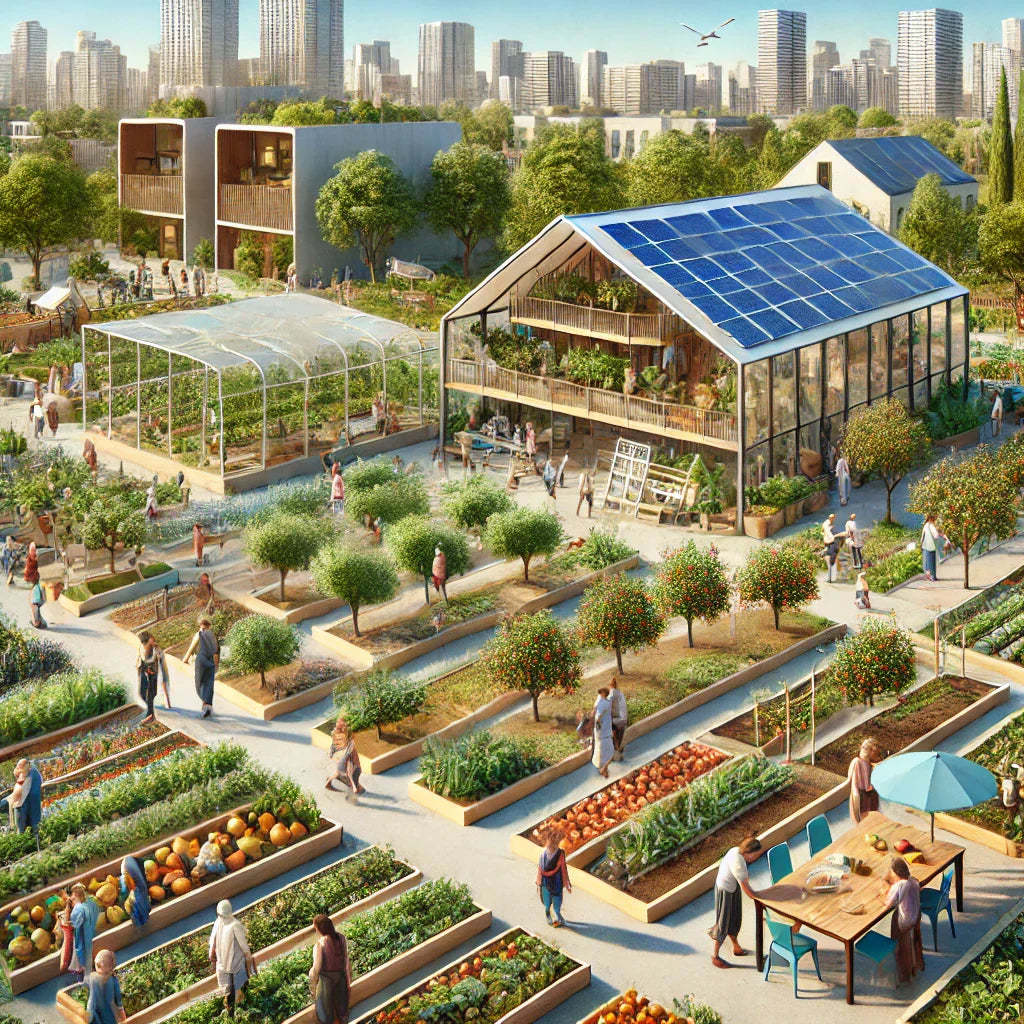Managing a small farm comes with unique challenges, but understanding how to leverage tax benefits can greatly enhance your financial stability and growth. Below is your ultimate guide to maximizing tax deductions, complete with links to valuable online resources to help North Texas farmers stay informed and empowered.
1. Classify Your Farm as a Business
Why It Matters:
The IRS requires farms to be operated for profit to qualify as businesses. Hobby farms are not eligible for the same deductions.
Steps to Take:
- Keep Records: Maintain detailed logs of income, expenses, and hours spent on farm activities. Use tools like QuickBooks for Farmers for financial management.
- Demonstrate Profit Motive: Show consistent effort to generate income, even if profitability takes time. The IRS's Hobby Loss Rule explains this in detail.
- Separate Finances: Open a dedicated bank account for your farm.
Pro Tip:
The USDA Farm Service Agency (FSA) provides resources to help you classify and legitimize your farm as a business.
2. Deduct Operating Expenses
Eligible Expenses Include:
- Seeds, Fertilizers, and Feed: Deduct costs related to growing crops or raising livestock. Learn more from the IRS Farmers' Tax Guide.
- Utilities and Maintenance: Include electricity, water, and repairs directly related to farm operations.
- Marketing and Sales: Expenses for packaging, advertising, or developing a website, such as through Squarespace.
Example:
If you spend $7,000 annually on seeds and $3,000 on repairs, you can reduce your taxable income by $10,000.
3. Depreciate Capital Assets
Farming often involves significant investments in equipment and infrastructure. Tax depreciation allows you to deduct these costs over time.
What You Can Depreciate:
- Equipment: Tractors, irrigation systems, and tillers.
- Structures: Barns, greenhouses, and fencing.
Resources:
- The IRS Section 179 Deduction allows upfront deduction of qualifying assets.
- For large purchases, explore Farm Credit for financing and planning.
Pro Tip:
Keep receipts and use the IRS MACRS Depreciation Calculator to estimate deductions.
4. Utilize Home Office Deductions
If you use part of your home exclusively for managing farm operations, you may qualify for a home office deduction.
Deductible Expenses:
- Proportional mortgage or rent costs.
- Utilities such as electricity and internet.
Resource:
Check the IRS Simplified Option for Home Office Deduction.
5. Explore Tax Credits
Tax credits reduce your tax liability directly and are especially beneficial for small-scale farmers.
Types of Tax Credits:
- Renewable Energy Credits: The Investment Tax Credit (ITC) provides up to 30% back for renewable energy installations.
- Conservation Credits: Contact the Texas A&M AgriLife Extension Service to learn about state-specific programs.
- New Farmer Credits: The Beginning Farmer Tax Credit Program supports agricultural startups.
6. Leverage the Qualified Business Income (QBI) Deduction
The QBI deduction allows pass-through businesses to deduct up to 20% of net farm income. Sole proprietors, partnerships, and S-corporations are eligible.
Resource:
Learn more about QBI from the IRS Qualified Business Income Deduction FAQ.
7. Claim Fuel Tax Credits
The federal government offers excise tax refunds for fuel used in off-road equipment.
Resource:
File Form 4136 through the IRS Fuel Tax Credit Program.
8. Use Tax-Advantaged Savings Plans
Invest in retirement while lowering your taxable income.
Best Options for Farmers:
- IRA Accounts: Deduct contributions of up to $6,500 annually (2023 limit). Compare plans on Fidelity.
- SEP IRA: Ideal for farms with employees. Learn more at Vanguard's SEP IRA Overview.
9. Deduct Losses
Operating losses can offset other income, and some can be carried forward or back.
Resources:
Explore the IRS NOL Rules to see how you can deduct losses from prior or future years.
10. Seek State-Specific Agricultural Deductions
Texas-Specific Benefits:
- Property Tax Exemptions: Farms in Texas can reduce property tax rates under the Open-Space Appraisal.
- Sales Tax Exemptions: Agricultural inputs like seeds and feed are exempt. Register with the Texas Comptroller of Public Accounts for an exemption certificate.
11. Stay Updated on Tax Law Changes
The agricultural tax landscape evolves regularly. Staying informed can help you maximize deductions.
Resources to Follow:
- Texas Farm Bureau for state-specific updates.
- USDA Newsroom for federal policy changes.
Conclusion
Maximizing tax deductions isn’t just a financial exercise—it’s an opportunity to reinvest in your farm and community. From leveraging home office deductions to taking advantage of renewable energy credits, North Texas farmers have a wealth of resources at their disposal. By utilizing the tools and links provided here, you can build a more resilient, profitable farming operation that supports the food revolution and sustains your local community.
Stay Connected with the Growing Revolution 🌱
Have questions or want to dive deeper into sustainable farming and urban homesteading?
Connect with us for resources, updates, and exclusive tips to transform your land into a sustainable powerhouse.
- 🌐 Visit our website: BragaFarmsDFW.com
- 📧 Contact us: bragafarms@outlook.com
- 📱 Follow us on TikTok: @BragaFarmsDFW
- 📸 Follow us on Instagram: @BragaFarmsDFW
- 📖 Explore our Amazon Gardening Collection: Shop Now
Visit Braga Farms
📍 Location: 123 Taylor St, Dallas, TX 75201
🛒 When to find us: Saturdays and Sundays at the Dallas Farmers Market
📅 Plan your visit: Check out our Leafcycle calendar
Celebrating 1,500+ ⭐⭐⭐⭐⭐ Google Reviews!
📍 Check out our Google Profile: Click Here
Join the Movement 🌎
Be part of a community that’s revolutionizing local food systems and creating sustainable solutions for the future.
- 📘 Read The Gardener’s Art of War: Learn More
- 🎥 Take a Virtual Tour: Front Yard Figs 2021
- 📝 Subscribe to our blog for weekly insights.
- 🤝 Share your journey with us using #BragaFarmsDFW.
- 🎓 Check out our workshops and consulting services: Learn More

